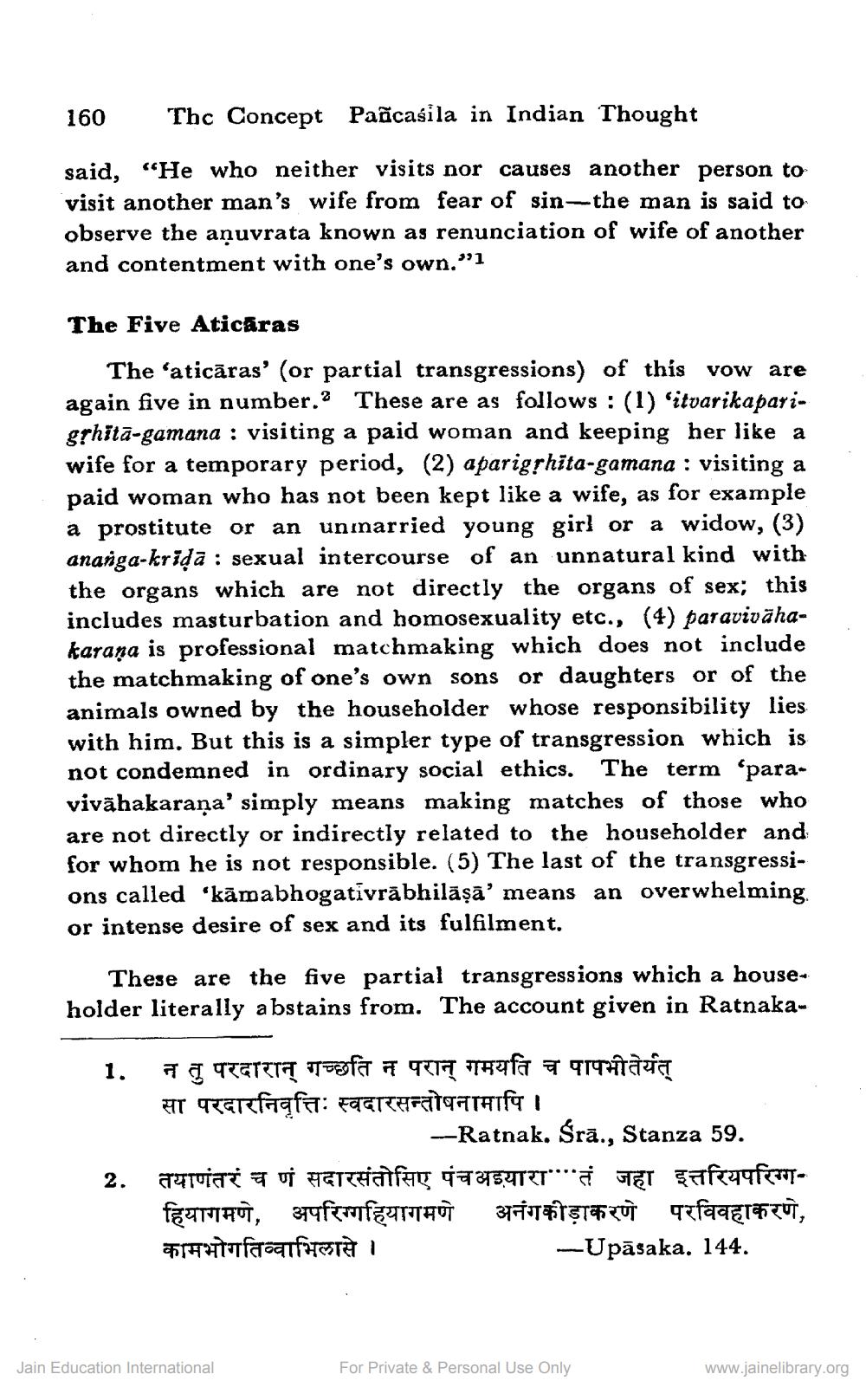________________
160
Thc Concept Pancasila in Indian Thought
said, “He who neither visits nor causes another person to visit another man's wife from fear of sin-the man is said to observe the aņuvrata known as renunciation of wife of another and contentment with one's own."1
The Five Aticāras
The ‘aticāras' (or partial transgressions) of this vow are again five in number. These are as follows: (1) 'itvarikaparigļhita-gamana : visiting a paid woman and keeping her like a wife for a temporary period, (2) aparigshita-gamana : visiting a paid woman who has not been kept like a wife, as for example a prostitute or an unmarried young girl or a widow, (3) ananga-krida : sexual intercourse of an unnatural kind with the organs which are not directly the organs of sex; this includes masturbation and homosexuality etc., (4) paravivāhakaraṇa is professional matchmaking which does not include the matchmaking of one's own sons or daughters or of the animals owned by the householder whose responsibility lies with him. But this is a simpler type of transgression which is not condemned in ordinary social ethics. The term 'paravivāhakarana' simply means making matches of those who are not directly or indirectly related to the householder and for whom he is not responsible. (5) The last of the transgressions called 'kāmabhogativrābhilāşā' means an overwhelming. or intense desire of sex and its fulfilment.
These are the five partial transgressions which a householder literally abstains from. The account given in Ratnaka
1. न तु परदारान् गच्छति न परान् गमयति च पापभीतेर्यत् सा परदारनिवृत्तिः स्वदारसन्तोषनामापि ।
--Ratnak. Śrā., Stanza 59. 2. तयाणंतरं च णं सदारसंतोसिए पंचअइयारा'तं जहा इत्तरियपरिग्ग
हियागमणे, अपरिग्गहियागमणे अनंगकीड़ाकरणे परविवहाकरणे, कामभोगतिव्वाभिलासे ।
-Upāsaka. 144.
Jain Education International
For Private & Personal Use Only
www.jainelibrary.org




